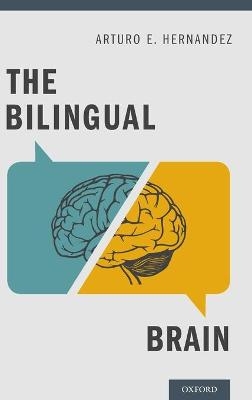
The Bilingual Brain
Oxford University Press Inc (Verlag)
978-0-19-982811-1 (ISBN)
Hernandez will extend recent work that has begun to take a biological or natural systems approach. He proposes that, in bilinguals, two languages live inside a brain almost like two species live in an ecosystem. For the most part they peacefully co-exist and often share resources. But they also compete for resources, particularly when under stress. Although there are still many questions to answer and many puzzles to solve, Hernandez argues that the nonlinear dynamical models, which have been used to uncover the underlying mechanisms seen in natural systems and more recently in language and cognition, can be used to shed considerable light on the neural bases of bilingualism.
Arturo Hernandez is currently Professor of Psychology and Director of the Developmental Cognitive Neuroscience graduate program at the University of Houston. His major research interest is in the neural underpinnings of bilingual language processing and second language acquisition in children and adults. He has used a variety of neuroimaging methods as well as behavioral techniques to investigate these phenomena which have been published in a number of peer reviewed journal articles. His research is currently funded by a grant from the National Institutes of Child Health and Human Development. Hernandez's interest in language learning has also been informed by having learned four languages at various points during his life.
Table of Contents ; Chapter 1: Antagonists, parasites, and symbiotes ; Chapter 2. The sensorimotor nature of early learning ; Chapter 4: Proficiency, efficiency and expertise ; Chapter 5: Practice what you speak ; Chapter 6: Controlled adjustments ; Chapter 7: Control, flexibility and the two language dilemma ; Chapter 8: The final frontier ; Bibliography
| Verlagsort | New York |
|---|---|
| Sprache | englisch |
| Maße | 234 x 155 mm |
| Gewicht | 408 g |
| Themenwelt | Geisteswissenschaften ► Psychologie ► Allgemeine Psychologie |
| Geisteswissenschaften ► Psychologie ► Verhaltenstherapie | |
| Geisteswissenschaften ► Sprach- / Literaturwissenschaft ► Sprachwissenschaft | |
| Naturwissenschaften ► Biologie ► Humanbiologie | |
| Naturwissenschaften ► Biologie ► Zoologie | |
| Sozialwissenschaften ► Pädagogik | |
| ISBN-10 | 0-19-982811-3 / 0199828113 |
| ISBN-13 | 978-0-19-982811-1 / 9780199828111 |
| Zustand | Neuware |
| Informationen gemäß Produktsicherheitsverordnung (GPSR) | |
| Haben Sie eine Frage zum Produkt? |
aus dem Bereich


